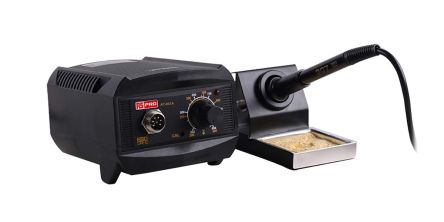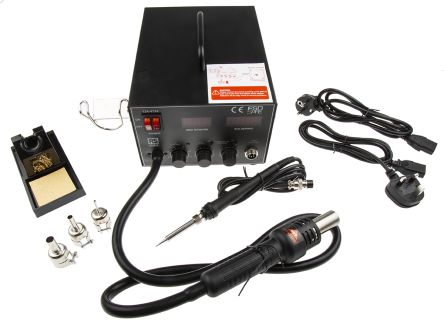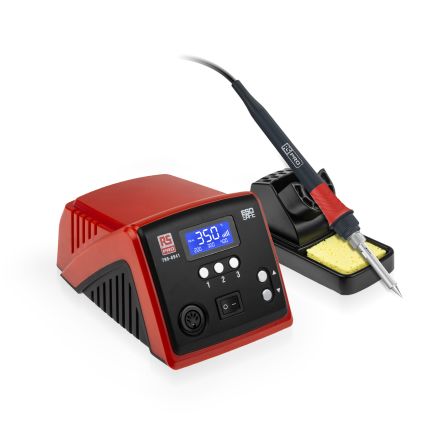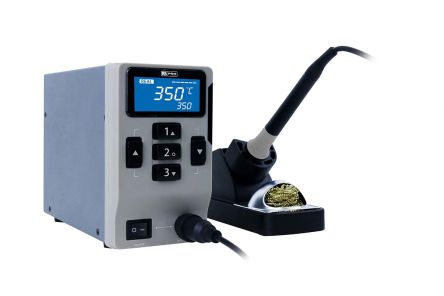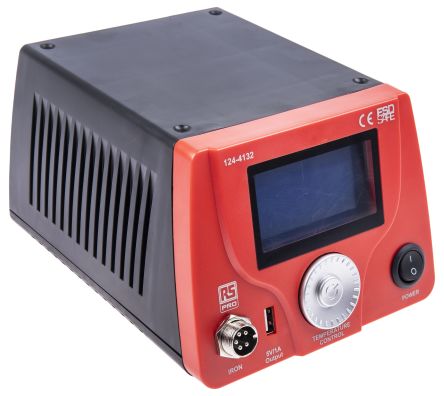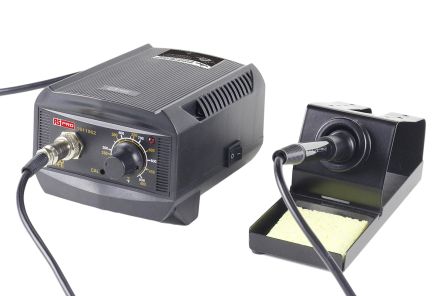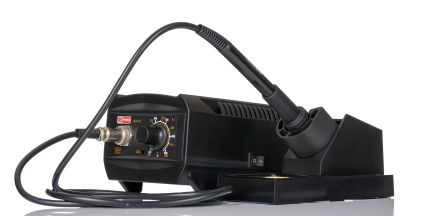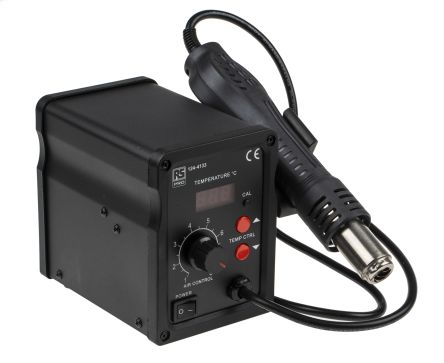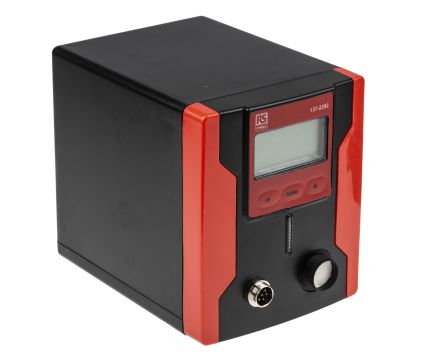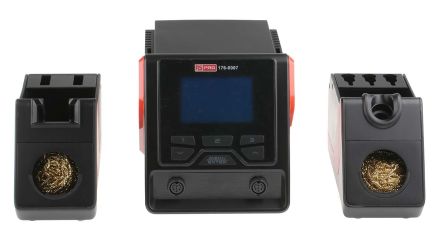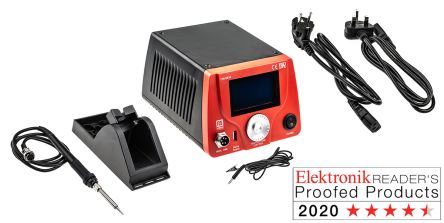- Automation & Control Gear
- Cables & Wires
- Enclosures & Server Racks
- Fuses & Circuit Breakers
- HVAC, Fans & Thermal Management
- Lighting
- Relays & Signal Conditioning
- Switches
- Batteries & Chargers
- Connectors
- Displays & Optoelectronics
- ESD Control, Cleanroom & PCB Prototyping
- Passive Components
- Power Supplies & Transformers
- Raspberry Pi, Arduino, ROCK, STEM Education & Development Tools
- Semiconductors
Soldering Stations RS PRO
A soldering station contains heating technology enabling the high heating temperatures required for the soldering process. The soldering iron attached only requires an electrical power source for heating and the application of solder wire to the area where an electrical join is needed between workpieces.
Features
For soldering on large objects, sophisticated soldering stations are required. These stations are temperature-controlled and include temperature sensors and regulating components to maintain the temperature of the tip at a steady level. They automatically draw more power when the object they are applying solder to is a large one. Some of these stations include a visual display of the temperature at the irons tip.
The key features of some soldering stations are:
- Digital Front-panel – For clear displaying of information
- Hot air pencil – Removal of SMD chips
- SMD tweezers – Specially designed for SMD chips
- Energy saving mode – Energy saving feature automatically switches off the station if left idle
- Delayed suction – To eliminate the problem of solder clogging up the tip
- ESD safe – Protects current sensitive components
- Temperature lockout feature – Password code can be used to lock the temperature
- Heater/sensor failed detection – If the sensor fails the heater power is shut down
- Programming - Selection of precise temperatures at the touch of a button, or being able to select pre-set fixed temperatures
Uses
Soldering irons are ideal for soldering together transistor leads, wires or pads on printed circuit boards (PCBs). Soldering stations are frequently used for production work in Electronic Assembly, for conducting repairs and completing installations. Less common, applications include plastic welding (which melts plastic workpieces together at a join rather than using separate solder material) and decorating wood with burned in designs (pyrography).
